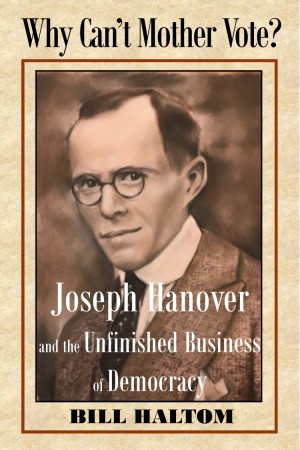Although Abraham Cahan strode like a giant across the stages of world Jewry, journalism, socialist politics, and labor union ascendency through the first half of the twentieth century, author Lipsky makes it quite clear that Cahan was a man first shaped by the circumscribed Jewish life into which he was born in small-town, nineteenth-century Russia.
The story of his unforeseeable remaking in New York, a story drawn in part from Cahan’s own memoirs and the parallels to the title character in his classic immigrant novel The Rise of David Levinsky, is told with an eye at once critical and warmly respectful.
Seth Lipsky, former editor of the English language edition of The Forward (Forverts), which Cahan brought to prominence in a three-part career filled with both turmoil and amazing success, emphasizes several main aspects of his subject’s achievement.
First and foremost, he details Cahan’s career as a self-educated, ambitious journalist who brought what was at first a neighborhood newspaper to worldwide stature and a daily circulation that peaked at 250,000. That career included staff, freelance, and guest assignments at many other important newspapers and magazines. For decades, Cahan’s name was everywhere, not only in the Yiddish language press but also in the higher reaches of mainstream journalism.
Cahan’s place in the transplantation of European Socialism to American soil as well as his prominence on the international scene as an advocate of socialist government also receives detailed attention, as does his early disappointment in the dictatorial Communist enterprise against which he became a loud and influential voice.
At one time, like many other socialists and free-thinkers, Cahan had little sympathy for the Zionist cause. Lipsky carefully and convincingly traces Cahan’s gradual transition to respect and then support for the Zionist position.
Finally, Lipsky makes the case for Cahan as a major literary figure — a man of great sympathetic imagination and skill. This splendid blend of character study and cultural history is a powerful addition to the “Jewish Encounters” series. Acknowledgments, index, notes.
Related Content:- A Bintel Brief: A Bundle of Letters by Liana Finck
- The Rise of David Levinsky by Abraham Cahan
Philip K. Jason is professor emeritus of English at the United States Naval Academy. A former editor of Poet Lore, he is the author or editor of twenty books, including Acts and Shadows: The Vietnam War in American Literary Culture and Don’t Wave Goodbye: The Children’s Flight from Nazi Persecution to American Freedom.




